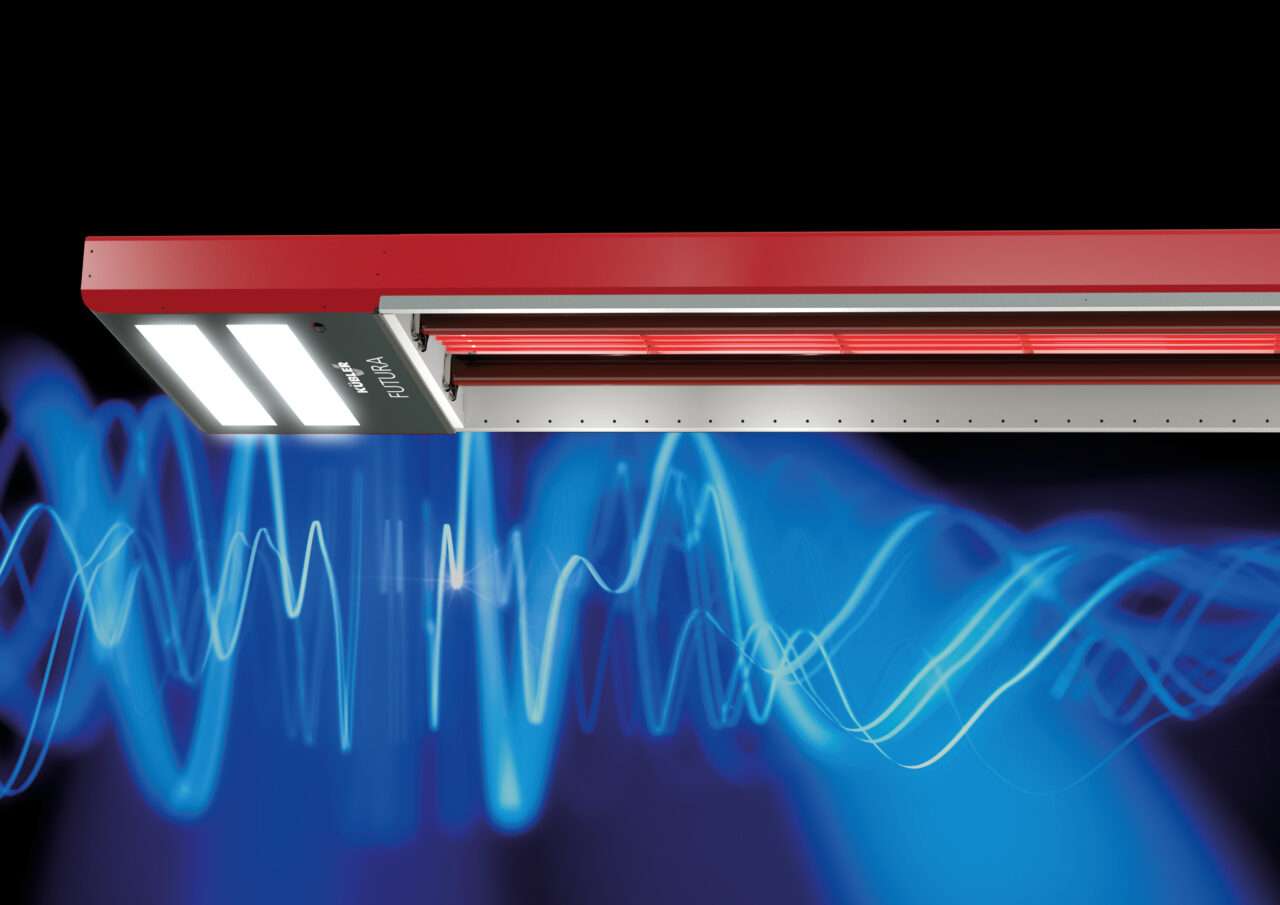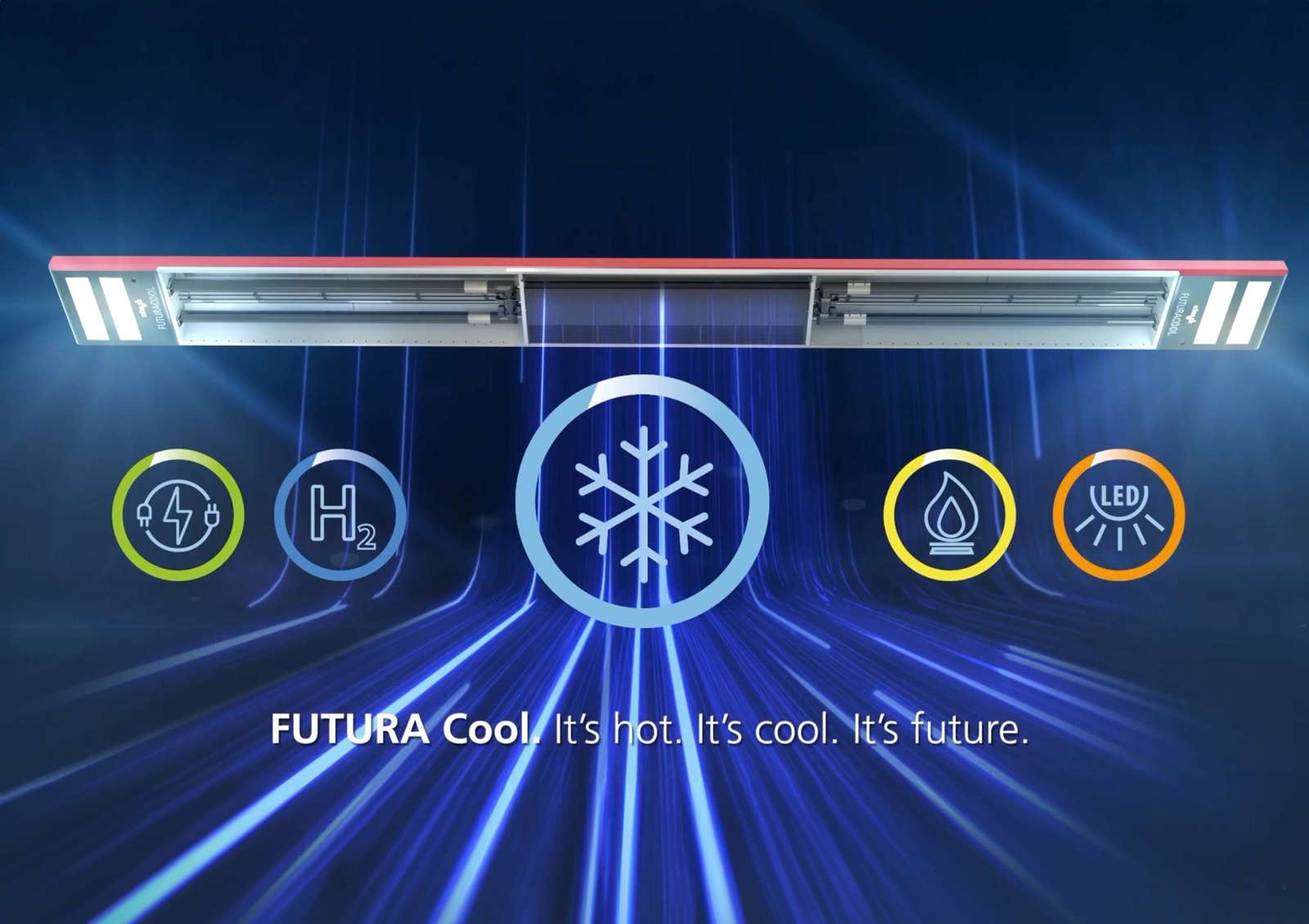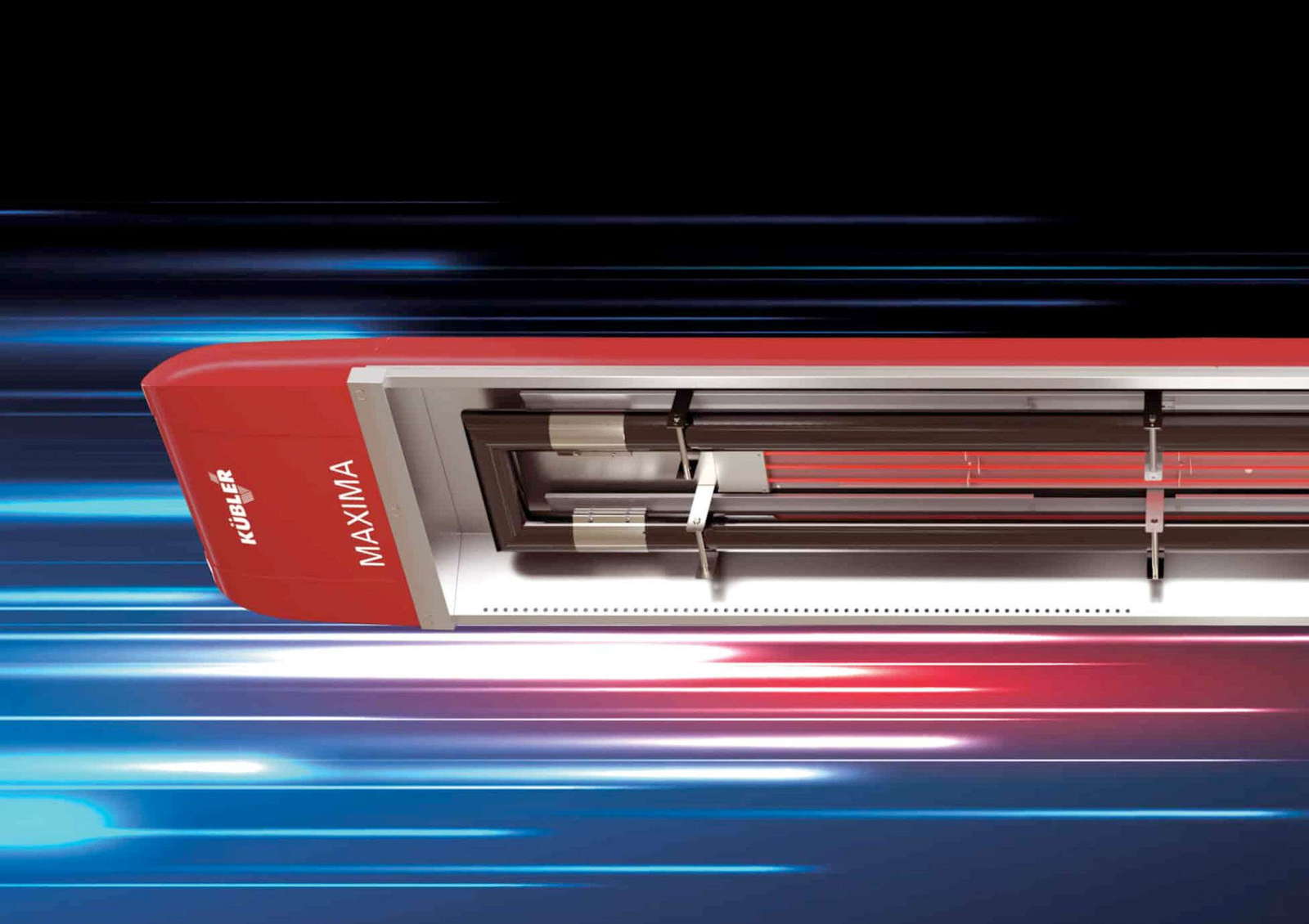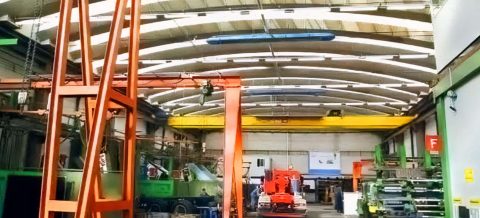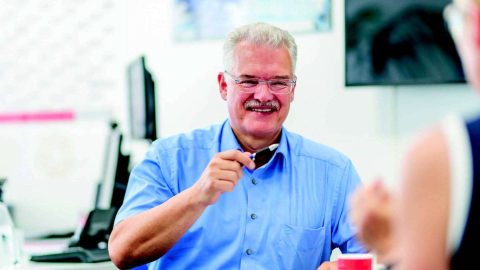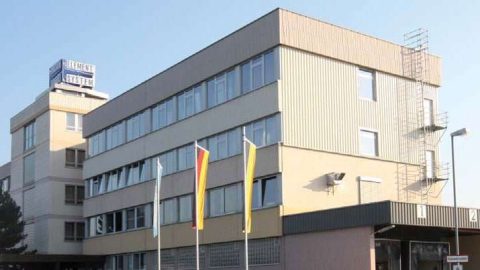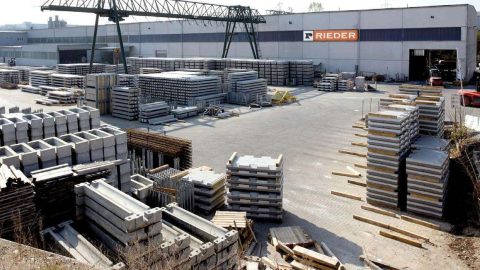Wippermann jr. GmbH is one of the leading European manufacturers of precision chains and sprockets. The product range alone comprises 2,462 standard products without custom-made products, including steel link chains, leaf chains, bush chains, gall chains and inverted tooth chains as well as special chains for all areas of drive and conveyor technology. Founded in Hagen in 1883, the company is now in its fifth generation of family ownership. The renowned manufacturer of maintenance-free Marathon chains generates an annual turnover of 36 million euros and employs over 300 people across Europe.
The largest refurbishment concept in the company's history was implemented in Hagen in a record time of ten weeks. The central steam heating plant for the heating of 62 building areas of Wippermann jr. GmbH was completely converted to decentralized technologies over an area of around 24,000 m2. The modernization contract was awarded to KÜBLER GmbH as general contractor. The overall concept of the Ludwigshafen-based hall heating specialist includes state-of-the-art infrared heating systems of various performance classes, the entire periphery as well as remote control and remote maintenance of the complex system. The results meet the high expectations of the integrated overall concept: after the first heating period, Wippermann has recorded energy savings of around 70 percent.
The project
The 125-year-old building structure at the headquarters of the Hagen-based precision chain manufacturer Wippermann jr. GmbH comprises around 70 buildings, some of them multi-storey, on an area of around 31,000 m2, including warehouses and production halls as well as administrative and residential buildings. Since 1965, the entire factory has been heated centrally by 2 steam boilers (3.5 and 5 MW), which were operated with either gas or oil firing. On August 20, 2006, the contract was awarded to KÜBLER GmbH, marking the start of the system modernization in 62 building areas and thus one of the most comprehensive heating renovation projects.
The task
The energy costs for operating the company's own heating plant had become disproportionately high. In particular, the rise in energy prices and the long heating period in 2004 / 2005 forced the company to make a quick decision. The changeover to a modern decentralized heating solution therefore had clearly defined objectives for Wippermann jr. 2. flexible control options according to demand and different heating zones. 3. flexible expansion options and easy dismantling of the systems, e.g. when the hall is reused. Due to the old technology and the poor state of insulation of the historic buildings, expectations regarding the potential for energy savings were relatively high.
The challenges
The aim was to make full use of the new heating period. 10 weeks, from placing the order on 20.08.2006 to the turnkey handover on 31.10.2006, were available to realize the large-scale renovation concept, from the conception to the awarding and coordination of the sub-trades to the installation and commissioning. An ambitious goal, given the complexity of the project. A wide variety of building layouts and ceiling heights had to be taken into account in addition to the many different types of use of the 125-year-old historical and partially listed buildings. Different installation conditions with individual fastening systems applied to almost every second room. Particularly challenging: the installation of the collective exhaust system, in some cases over five floors. The entire project was installed during ongoing operations. Work was carried out during the day, at night and at weekends. At times, 40 fitters were on site at the same time to carry out the various trades, from the gas and electrical installation to the roof and wall openings.
The measures
The heating systems
189 Optima and AR 13 HB infrared heaters with a total output of 3.1 MW were installed. The design of the overall system ensures even, dust-free and draught-free heat distribution both at high (up to 20 m) and low room heights (under 4 m). The modern infrared systems save energy with short heat-up times and can be controlled separately for around 100 heating zones depending on the usage profile and current heat requirement in the hall. Eight additional central heating units (condensing boilers) for water treatment were installed for energy-saving heating of the ancillary and living areas.
The control systems
State-of-the-art control technology ensures that the heating systems at Wippermann jr. GmbH are operated efficiently and individually according to the different usage profiles and heating requirements of the halls. To this end, 26 R.O.S.S.Y® systems were installed. The excellent* control system from KÜBLER GmbH can be controlled from a PC workstation.
Interview with Christian Hamann, Wippermann jr. GmbH
Christian Hamann is managing director and co-owner of Wippermann jr. He has developed the extensive
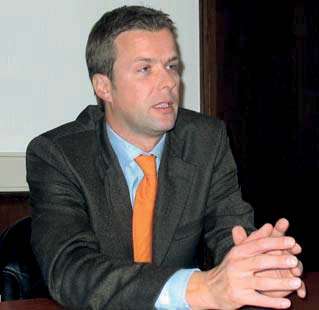
He declared the heating renovation project in his company to be a top priority and personally accompanied the implementation phase from the beginning to commissioning. He spoke to our editorial team in Hagen about his impressions and initial practical experience with the new integrated heating solution from KÜBLER (infrared heating - control - process control).
You initially examined other concepts for the heating renovation. What was the deciding factor in awarding the contract to KÜBLER?
One thing was clear: heating 24,000 square meters would involve a high investment volume. You have to take a closer look. The first consideration was a contracting model based on conventional hot water heating. However, it quickly became doubtful whether this concept could be a satisfactory solution. In addition, it would have been impossible to install the system during the upcoming heating period. This prompted us to examine an alternative concept. With KÜBLER, we were immediately impressed by the way it works. Ideal for our building structures. Another advantage was that the entire system was to be installed within two months. That actually turned out to be the case. We hardly operated the boiler house during the upcoming heating period.
What concerns arise when you enter uncharted territory in terms of heating technology for such a large project?
I had no concerns about the technology. The way it works was explained to us well and convincingly. What really worried me was the insulation of the buildings. Large-scale insulation measures would not have been economically feasible for us. KÜBLER's advice reassured us in this respect, namely to put heating and insulation into perspective. What do I invest in a heating system with what efficiency, what effect? And what would I have to invest in insulation to achieve the same effect? That convinced me.
The complete modernization during operation: did it sometimes crunch?
Quite the opposite! The composition of the people on site was very well organized. Both the KÜBLER employees and the subcontractors were very experienced teams. The project was a) a lot of fun and b) extremely efficient. I have rarely experienced this and I can say quite clearly that it did not have any noticeable impact on our ongoing operations.
What are your first impressions of the integrated heating concept?
First of all, the system looks great. The whole room looks different. The large blue Optimas look particularly good in high halls. And the smaller units are simply very elegant with the stainless steel panels. What's more, I can now change the use of a hall at any time and either extend the heating or remove the units and install them elsewhere. The control system is a revelation for us. For the first time ever, we can control it from the comfort of our PC.
Have your employees warmed up to the new heating system?
At the beginning, some people still complained. Some felt that the new heating was too cold. No wonder, because up to now people have been working in T-shirts even in winter. We sometimes had sauna temperatures in the areas near the boiler house. Everyone is now delighted. The climate is now much more pleasant. What's more, no-one now opens the window in a sweat or goes outside in sub-zero temperatures. I also expect the modernization to reduce the number of sick days.
What conclusions do you draw after the modernization project?
Our expectations have been absolutely fulfilled. The entire system is simply convincing. Well thought out, well designed and almost perfect in terms of functionality. I'm also really pleased to have found a solution that is economical for a property like this. Based on the experience of the first heating period, we have saved 70 percent on fuel. Of course, we still have to compare the exact figures with the temperatures in the winter of 2005 / 2006, but one thing is already clear: we have exceeded our targets.
Would you recommend the integrated heating concept from Kübler?
In a way, we have set a milestone with our project. It could hardly be more complex and difficult. There are certainly plenty of halls where the system can make better use of its potential than here. This technology is highly recommended. Not only because of the way it works and its high efficiency, but also from an environmental point of view.
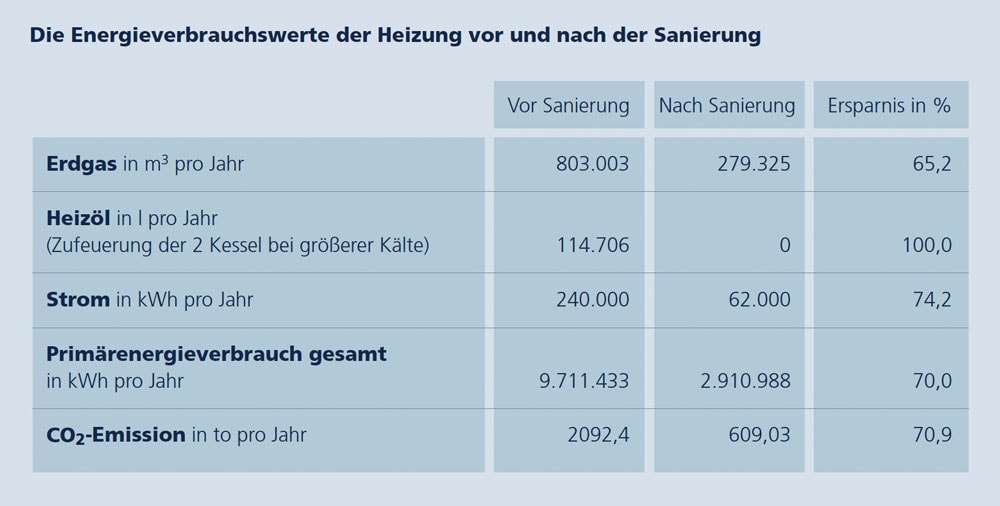
The results
The integrated solution comprising state-of-the-art heating and control systems and innovative process management was commissioned on schedule on October 31, 2006 - thus ensuring its use for the full 2006 / 2007 heating period. After the first heating period, the figures prove the high effectiveness of the new heating system: supported by the mild winter, the energy requirement is around 2.9 million kWh - only 30 % of the consumption values of the old system. At a kWh price of around €0.05, this results in savings of €340,000 in primary energy consumption alone.
For Wippermann, the investment in the modern heating concept from KÜBLER also pays off due to the following economic factors:
- Savings in personnel costs for service: around € 70,000 p.a.
- Savings on maintenance and servicing costs: around € 40,000 p.a.
- Savings on operating material costs: around 80 % p.a.
- Gain new usable space by decommissioning the boiler house
About KÜBLER
KÜBLER is an internationally active group of companies. Our core business is the development and production of highly efficient premium technologies for energy-saving hall heating. With an exceptionally wide range of products for almost all types of halls and room environments. KÜBLER is regarded as a pioneer and innovation leader in modern infrared heating technology. Our products and development work regularly win awards.
The national and international awards include the Federal Prize for Outstanding Innovative Achievements from the Ministry of Economic Affairs, the Bavarian State Prize, the Rhineland-Palatinate Innovation Prize and the German Sustainability Award, among many others. KÜBLER received the highest German award for sustainable entrepreneurship in the category "Germany's most sustainable product" for the special energy efficiency of the H.Y.B.R.I.D. system.
Founded in 1989, the group of companies employs over 100 people and is one of the leading companies in the industry in Europe with locations in Ludwigshafen, Dresden, Hagen, Hamburg, Ingolstadt, Prague (Czech Republic), Fegyvernek (Hungary), numerous foreign agencies and a nationwide service network.
